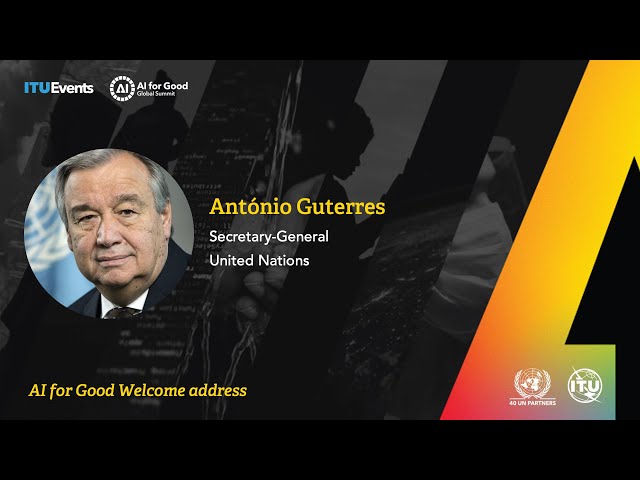UN Secretary-General Calls for International AI Governance Body to Manage Risks and Benefits

"UN Calls for New International Body to Regulate AI: Balancing Risks and Benefits"
Summary:
The United Nations Secretary-General, António Guterres, urged the creation of a new international body to oversee the use of artificial intelligence (AI) as its potential risks and benefits become increasingly evident. Guterres emphasized the need for globally agreed-upon rules to regulate AI, comparing it to the UN's previous efforts in managing nuclear energy, aviation safety, and climate change. The UN has already employed AI in its operations but has also faced challenges from malicious actors using AI for harmful purposes. Guterres warned of potentially catastrophic consequences if AI is misused and called for proactive measures to address these risks. He proposed a legally binding agreement banning the use of AI in fully automated weapons by 2026 and the establishment of an advisory council to develop broader AI regulations. The meeting was led by UK Foreign Secretary James Cleverly, who emphasized the importance of tying AI governance to principles of freedom, democracy, human rights, and security.
Details:
UN Secretary-General António Guterres has called for the establishment of a new international body to effectively govern the use of artificial intelligence (AI), given the technology's growing potential risks and benefits. In a momentous gathering, the UN Security Council convened for the first time to address AI governance, where Guterres emphasized the need for globally agreed-upon rules to monitor and regulate AI effectively.
Drawing parallels with the UN's previous efforts in managing nuclear energy, aviation safety, and climate change, Guterres highlighted the organization's unique role in coordinating the international response to the challenges posed by AI. He acknowledged that the UN has already employed AI within its operations, using it to monitor ceasefires and identify patterns of violence. However, he also expressed concern over hostile actors misusing AI in UN peacekeeping and humanitarian operations, leading to significant human suffering.
Guterres warned about the grave dangers associated with the malicious use of AI systems for terrorist, criminal, or state purposes, stressing that such actions could result in unimaginable levels of destruction, trauma, and psychological damage. The potential of generative AI for both good and evil at an unprecedented scale demands immediate action to address the associated risks, he emphasized. AI's creators themselves have expressed concerns about looming catastrophic and existential risks, underscoring the urgent need for responsibility toward present and future generations.
The UN Secretary-General proposed that by 2026, a legally binding agreement should be in place, forbidding the use of AI in fully automated weapons of war. He further pledged to convene an advisory council tasked with developing comprehensive proposals for AI regulation by the year's end. Additionally, Guterres teased a forthcoming policy brief containing recommendations for governments on responsible approaches to AI implementation.
Leading the historic meeting, UK Foreign Secretary James Cleverly stressed the importance of anchoring international AI governance to core principles of freedom, democracy, human rights, the rule of law, security, and privacy protection. Cleverly noted that AI's far-reaching impact could either enhance or disrupt global strategic stability, challenging conventional defense and deterrence assumptions. The technology also raises moral questions about accountability for lethal decisions on the battlefield.
Despite the potential risks, Cleverly acknowledged AI's potential in halting the reckless pursuit of weapons of mass destruction by state and non-state actors alike. Thus, he emphasized the significance of balancing regulation with opportunities for positive contributions from AI.
In conclusion, the call by UN Secretary-General António Guterres for a new international body to oversee AI governance reflects the urgent need to manage the technology's risks and benefits. By setting globally agreed-upon rules and regulations, the UN aims to ensure the responsible and beneficial use of AI while safeguarding humanity from potential catastrophic consequences stemming from its misuse.
Shaping Responsible AI Governance: UN Chief’ Address at AI for Good Global Summit | United Nations
Tags: UN Secretary-General Calls for International AI Governance Body to Manage Risks and Benefits